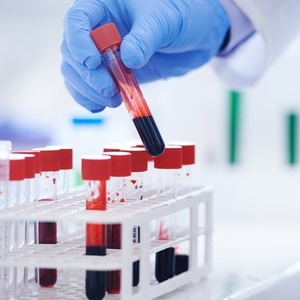
According to a previous Health24 article blood tests may now be used to detect the early stages of pancreatic cancer or death risk after surgery and even to distinguish the early stages of depression from schizophrenia.
And now there are even more possibilities.
A new genetic blood test might pave the way for detecting early stage cancers that often prove fatal when caught too late, a new study suggests.
The report appears in the issue of the journal Science Translational Medicine.
DNA fragments tested for mutations
The test scans blood for DNA fragments released by cancerous tumours, explained lead researcher Dr Victor Velculescu.
By reviewing these DNA fragments for mutations found in 58 "cancer-driver" genes, the blood test detects many early stage cancers without rendering false positives for healthy people, said Velculescu, co-director of cancer biology at the Johns Hopkins Kimmel Cancer Center, in Baltimore.
The test detected stage one or two colon, breast, lung or ovarian cancers between 59% and 71% of the time when assessing 200 patients previously diagnosed with cancer, researchers found.
Early detection key for survival
"If we are able to detect cancer earlier, our chances of saving lives would be much higher," Velculescu said. "The survival difference between late-stage and early stage disease in these cancers accounts for over a million lives worldwide each year."
The test also proved capable of screening out cancer-free people.
Dr Len Lichtenfeld, deputy chief medical officer for the American Cancer Society, called this "important research" that "moves us one step further down the path to developing a blood test that might find cancer earlier."
A step forward
"We still need to improve the sensitivity, but this is a step forward. It is a proof of concept," Lichtenfeld said. "It is not a test that's going to be available in a clinical laboratory anytime soon."
To develop a genetic blood test for cancer, researchers must find ways to spot DNA mutations linked to cancer while ignoring natural and harmless mutations that regularly occur in humans, Velculescu explained.
Velculescu and his team developed a genetic scan that essentially "takes a fragment here and a fragment there and uses it to create a picture of what the tumor DNA looks like," Lichtenfeld said. "That's what makes it so elegant."
Ovarian cancer a priority
The research team assembled a panel of 58 cancer-linked genes, and used their scan to look for tumour DNA fragments in the blood of 200 people known to have cancer.
Overall, researchers detected about 62% of stage one and two cancers.
The test specifically spotted early stage colon cancer 71% of the time, breast and lung cancer 59% of the time, and ovarian cancer 68% of the time.
The ability to catch early stage ovarian cancer is particularly needed, Lichtenfeld said. Fewer than one in five ovarian cancers are caught early, when the five-year survival rate is greater than 90%. Most are detected after they've spread, and by then the odds of five-year survival are 40% or less, he said.
"Finding any marker in a stage one ovarian cancer patient is very important, because this is a tumour that usually presents at a much later stage," Lichtenfeld said.
The researchers also directly tested cancerous tissue removed from half of the 200 cancer patients. They found that 82% of the tumours contained mutations that correlated with DNA fragments found in the person's blood.
Larger studies needed
Despite these promising results, researchers need to validate the blood test in larger studies, Velculescu said.
"What's going to be so important is to be able to distinguish cancers that will hurt people versus cancers that may not have long-term impact on survival," Lichtenfeld said.
Image provided by iStock.




 Publications
Publications
 Partners
Partners











